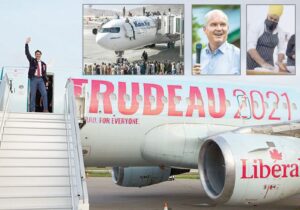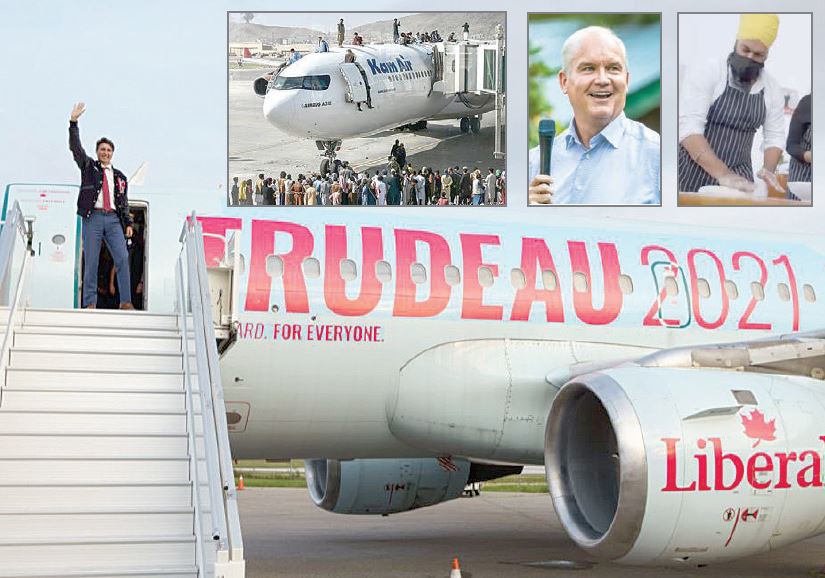Week One in the Election Campaign, Confused Yet?

TORONTO – The election campaign has only just begun and there is trouble on the horizon. Some campaign organizations will have to “uncomplicate issues “, for themselves, as well as for the electorate. To begin, all the campaign teams seem to have accepted the old political philosophy that ‘all politics is local’. As crass as it may appear, the central theme for the voter is “talk to me after the cheque clears the bank”.
CPC Leader, Erin O’Toole, probably pulling a Stephen Harper rabbit out of the hat, has decided that a Tax Holiday is just what the doctor ordered for resolving Covid and related economic issues. In fact, it is not any tax cut but the hated GST (5% on all goods and services) component of the HST; and it applies to just about everybody.
Now we will not have to pay it. What a relief for the taxpayer… even if it lasts for one month only. The adjustments that retailers and suppliers may have to implement to deliver… well, that is another story.
“The cut” presumably will stimulate consumer spending, spur economic growth and lead to job creation. Equally important for the Conservatives is the opportunity to add a label to their campaign signs to the effect of “we’ll cancel the GST’’. It seems a clear, to the point, message. Will it be enough to start their ball rolling?
Maybe not, but it beats the lead issue that “torments” the Liberals just as the Governor General accepted their request to prorogue Parliament and issue the writs.
There it is “In flashing lights” – Afghanistan – the ultimate symbol of why Global Affairs themes are rarely a winning issue domestically. It is a historical graveyard for foreign colonialists: Greek, Mongolian, Indian, British, Russian and now the USA and their Allies.
Its military are outfitted in uniforms that resemble the garb of tattered hand-me-downs belonging to proverbial street people. Their weaponry is [maybe] just a step up from that available to street thugs but they have caused the greatest military powers to tremble and withdraw in humiliation.
As a country, Afghanistan is economically poor by our standards. Its population is 38 million – roughly the size of Canada’s. Its measurable economic output (not underground) or GDP, according to Statista, is barely $20 billion USD. The World Bank calculates its purchasing power at $2,087 per capita, compared to Canada’s $49,000.
As the USA finally admitted, after 20 years of fruitless involvement, it is the “black hole” of public policy for Western countries. There is nothing to buy, less to cultivate not counting raw material for opiates. America has just “up and left”.
Canada is following suit, covering its tracks with a difficult to explain “plan” involving the settlement of 20,000 Afghanis within our immigration program.
A source close to Global Affairs, unauthorized to speak on its behalf and only under condition of anonymity, says it may be an untenable and unnecessary effort. It claims the number of Canadians and their Afghani support staff is in the hundreds but at the very most does not exceed 1,000 – two Boeing 747 planeloads – at best.
How many are needed to “rescue” 20,000 with no personnel to “process them” and the extremist Muslim Taliban “at the gate”, and armed to the teeth? Canada has closed its embassy.
The NDP, for some inexplicable reason, launched the election campaign bemoaning the fact that some proposed legislation will now “die on the order paper”. They are particularly concerned that Bill C-6, amending the criminal code to outlaw the counselling and delivery of conversion therapy for minors suffering from gender dysphoria, will now be lost. Some parents may be relieved.
The pics of the leaders are taken from their Twitter profiles, the Kabul airport is from Dw.com



